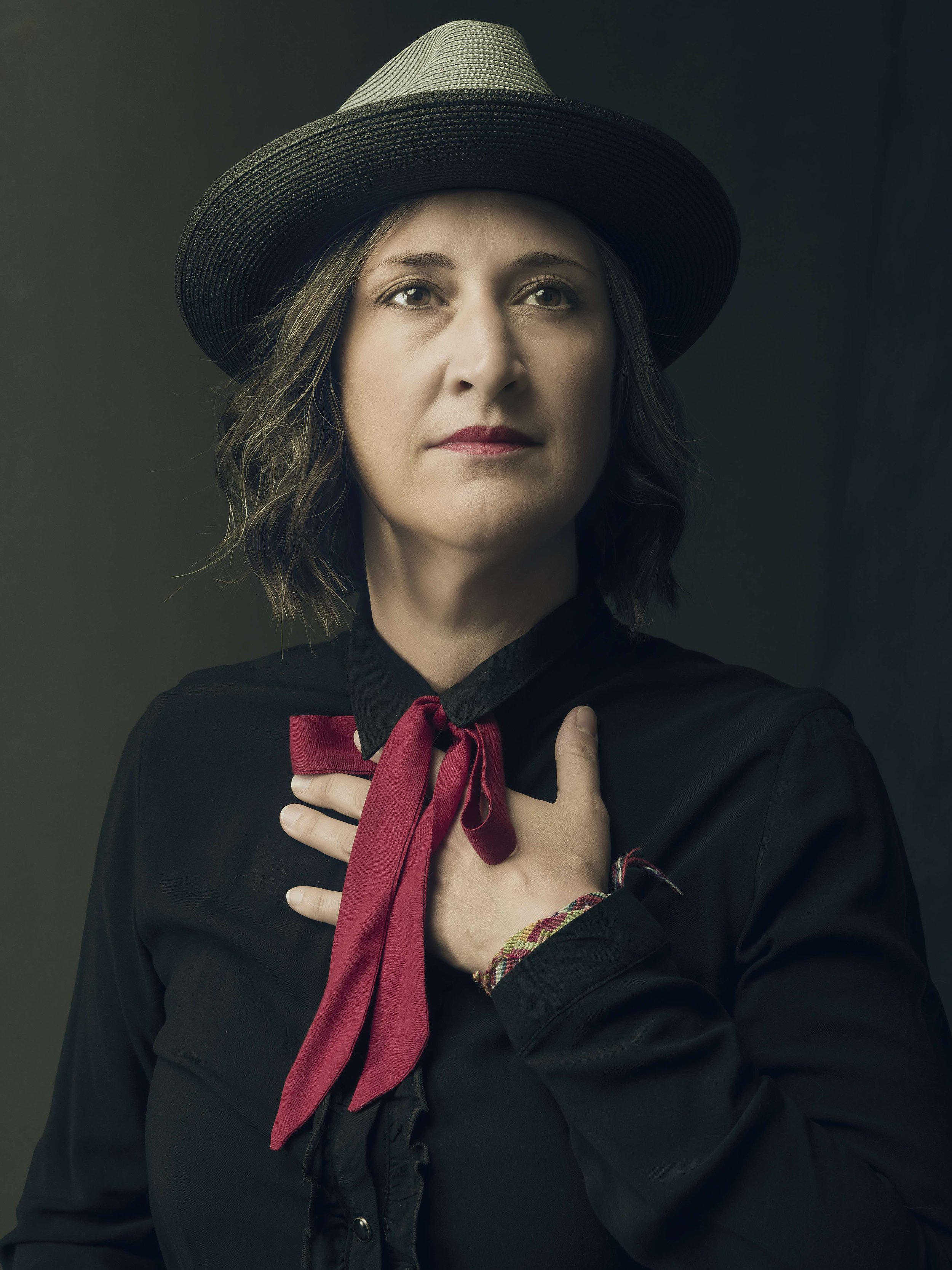Jazz Fest: Amanda Shires is True to Her Fiddle

In this encore presentation, the Americana fiddle player talks about her relationship to The Texas Playboys, husband Jason Isbell, and her instrument.
Last summer, we ran this story on Americana artist Amanda Shires, who plays Jazz Fest's Fais-Do-Do Stage today at 4:25 p.m. Here's an encore presentation of that story. Her most recent release is the "Sea Songs" single, which she recorded with her husband, Jason Isbell.
“The fiddle is like a cat,” Amanda Shires says, half-serious. “It’s not like the dog that invites you to pet it. The cat comes around and will play if you’re nice to it. There’s no inviting on a fiddle. You take your ass-whupping and go home.”
It’s not immediately obvious from Americana artist Amanda Shires’ Down Fell the Doves that she’s a fiddle player. The opening “Look Like a Bird” is defined by her voice and the song’s melody. Instruments only enter when necessary, and her fiddle often drones in the background like feedback or a keyboard. If there’s a fiddle in the rowdier “Wasted and Rollin’,” it’s obscured by the guitars. Shires wasn’t hiding her fiddle, though. She began playing it at 15 with The Texas Playboys, so she’s not insecure about her skills. The songs’ arrangements were simply a product of the vibe in the studio when she went in to record with producer Andy LeMaster (Bright Eyes, many Saddle Creek bands) and her then-boyfriend Jason Isbell and members of his band, The 400 Unit. She didn’t have arrangements going in, so Down Fell the Doves sounds loose and crafted at the same time. Her imaginative lyrical voice and strong melodies mark the album as the product of someone in charge of her art.
“When it comes to songwriting, I try to do whatever is best to serve the song,” she says by phone from her home in Nashville. She writes on fiddle and ukelele, and though it wasn’t by design, she kept the instruments she wrote the songs on in the recordings—songs written on the fiddle feature a fiddle; songs written on the ukelele include a ukelele. But inspiration comes when it does, so she has songs that started with neither.
“Occasionally you have ones where you’re mowing the grass or taking a shower and you have to grab a towel and write it down,” she says, laughing. “It doesn’t come with any instruments.”
Since recording the album, Shires and Isbell married and bought a house in Nashville. They’ve moved in but still have boxes everywhere and are trying to figure out when they’ll really move in. When their schedules allow, they find it relaxing to simply be the fiddle player or guitarist in each other’s band, but more often they’re going separate directions.
“We don’t go longer than three weeks without seeing each other,” she says, and she leaves the room he’s in to do this interview. After a moment, she’s somewhere else in her house noticing yet another sign that they haven’t quite settled in.
“I’m sitting out here looking at my yard and there are more weeds. I think the bird feeder dropped some corn because I have two corn stalks growing.”
Not that Shires has had time for unpack or mow. In addition to touring, she’s finishing her fourth year in the Creative Writing MFA program at Sewanee. Many songwriters shy away from anything that might tinker with their creative process, but Shires wanted more insight into hers.
“You can be superstitious about [songwriting] and think that it’s some mystical thing, and part of it is I guess as you’re trying to say your feelings and make them rhyme. But I don’t think any education or knowledge will hurt you at all. If people think knowing more about a subject might hurt their writing, that might be an excuse for something.”
That sort of unassuming practicality comes through in Shires’ conversation. She works to say the right thing, but a sly sense of bemusement creeps in. When she talks about her favorite songwriters (“I love anything Leonard Cohen ever wrote”) and poets (Octavio Paz, Marianne Moore, and Mark Strand to name a few), she become wry when she gets to fiction writers. “When I was young, I did the whole Tom Robbins thing,” Shires says. “You have to read a bunch of James Joyce if you want to get an MFA, I guess.”
Perhaps that comes from an awareness of how unlikely her music career is. Shires grew up in a poor family in Lubbock, Texas, and she now appreciates that when she asked her dad to buy her a $60 fiddle that she saw in a store, the money could have been more practically spent. That story seems even more improbable because she didn’t know why she wanted it; she just did and chalks it up today to “mystical bullshit.”
The fiddle not only helped her make her future and get her out of Lubbock, but it helped her meet some of her idols. While with The Texas Playboys, Shires met the great Western Swing songwriter Cindy Walker (“You Don’t Know Me,” “Cherokee Maiden,” “Miss Molly”) and George Jones. “He signed my fiddle, and we talked about fiddles for a while. I was shaking when I met him.”
Shires suffered a setback in 2011 when a guitar player broke her fiddle while onstage. She got another one, and the broken one has been glued back together. She hasn’t acquired a number of fiddles, though. She laughs and says fiddle players don’t do that.
“The fiddle’s a real relationship. It’s kind of like dating; you find one you like and marry it. Guitar players, no, they whore around and get lots of other guitars. Fifty thousand guitars hanging around.”






